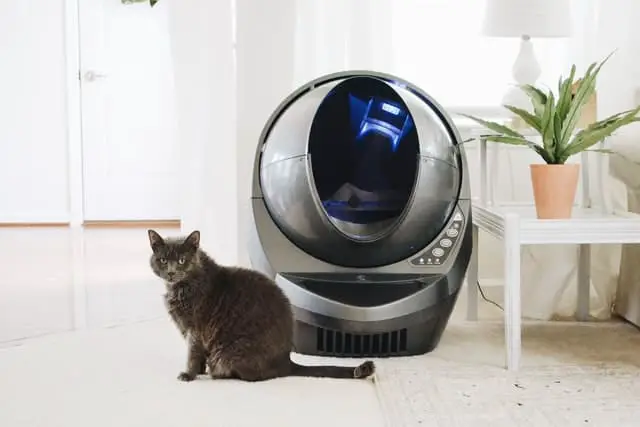
While some cats run off after doing their business, as if they had the devil on their heels, others give voice. Indeed, some felines begin to meow, more or less loudly, when they come out of their litter. If this is the case with your cat and it has always acted like this, there is nothing to worry about. On the other hand, if this behavior appeared recently, it is better to try to understand why.
1. It informs you
If your cat has a habit of meowing after peeing and/or pooping, it’s probably because they’re talkative and want to share everything they do with you. It therefore informs you that it has pooped, because perhaps it thinks it is important for you to know.
2. He feels liberated
Eliminating can be liberating for your cat. Indeed, it can feel a real relief. Feeling lighter and more relaxed, it then expresses their contentment by meowing. If your cat is prone to digestive disorders (diarrhea, constipation, etc.), it may be more likely to meow with joy after going to the litter box.
3. He asks for a reward
If during potty training you gave your cat a treat every time it used the litter box, chances are it got used to it. And that it continues to ask for it despite the fact that it is now clean!
In this case, try replacing this sacrosanct delicacy with a caress, it will be much better for his health!
4. He wants his litter box to be clean.
Some felines are particularly keen on hygiene. If this is the case with your hairball, it may want to let you know, with a meow, that it’s time to clean out its litter box.
Your cat may also have entered its litter box with the aim of defecating, but upon discovering the unsanitary conditions of the place, it will have decided that the litter box was far too dirty for it. It will then meow to order you to clean it up quickly. If you don’t, expect them to relieve himself elsewhere in the house…
Good to know: your cat’s request may also concern, in addition to cleanliness, the scent or texture of the litter. Indeed, if you have changed it recently, it may be that it has trouble liking their new litter and that it lets you know… The same goes for the litter box.
5. He expresses unease
Whether it’s inside its litter box or outside, your cat may meow to draw your attention to any discomfort it feels.
For example, if it has a urinary tract infection or an intestinal obstruction, trying to relieve itself can cause them great pain. Likewise, if it suffers from joint problems, simply getting out of his litter box can be a source of pain for them. In this case, it can therefore vocalize in pain, or simply to alert you to their condition.
6. He is scared

If you live with multiple cats, one of your cats may be tyrannical. It then sows terror among one or more other cats and prevents them from living peacefully.
So, if one of your cats is the victim of a bullying cat, they may feel a little stressed when it’s time to go to the litter box. And for good reason, tyrant cats tend to block access to essential needs, such as food or litter. In fact, the victim cat may start meowing in fear or frustration near the litter box.






